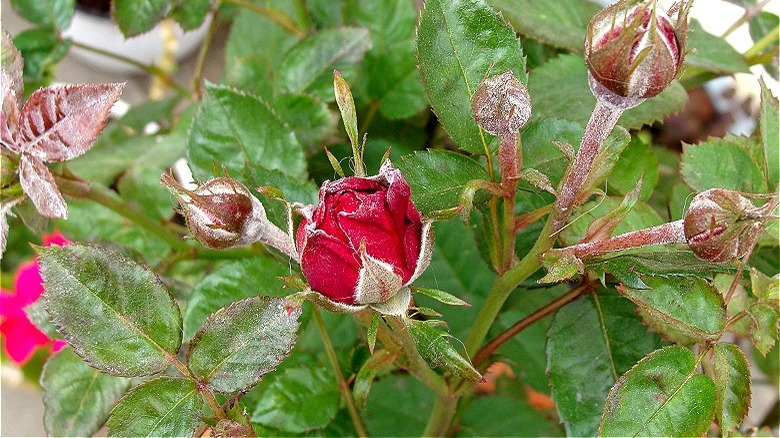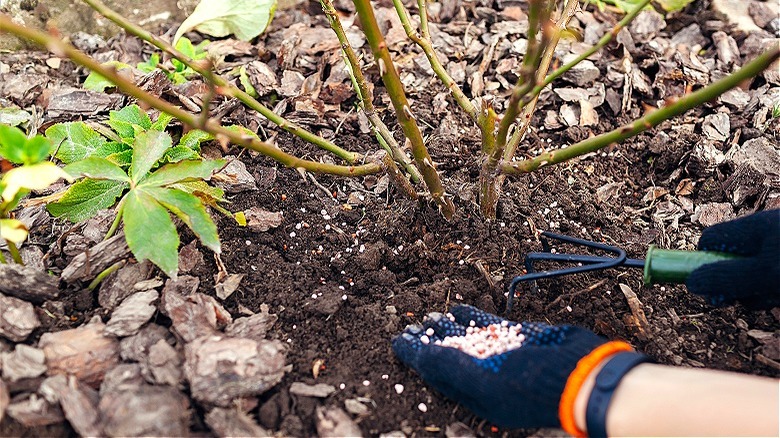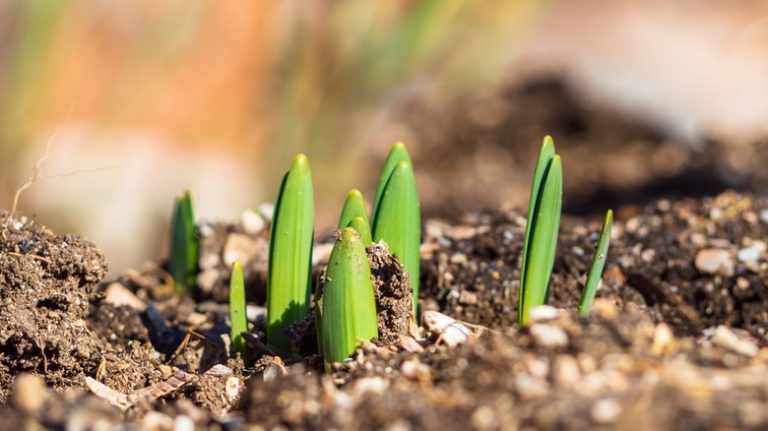For most varieties of roses, fertilizing them throughout the growing season, generally once a month to once every six weeks, is ideal. This helps to encourage beautiful, bountiful rose blooms throughout the season. However, you’ll want to stop fertilizing them about six weeks prior to the first frost in your area. By reducing fertilizing at that point, you’ll give the roses the ability to stop putting effort toward new blooms while still working to harden the latest growth to prepare for the winter months.
By limiting fertilizing in the month leading up to the winter season, you give the roses the ability to avoid damage from the first frost. Without that damage, the roses can enter the dormant period in better health and, in most situations, may come back in the spring healthier with less of a recovery period. In the northern portion of the United States, aim for the last feeding for your roses to happen around late August or early September. If you’re in a warmer Southern climate, you can feed roses well into October and continue that luscious bloom a bit longer.
Many rose varieties are highly fertilizer-friendly, meaning they bloom much better when they’re fed on a routine basis. Many factors contribute to when and what to fertilize with, especially for that last feeding, but what’s most important is to ensure you feed roses what they need to do well for years to come. There are a few things to know about supporting your roses in your garden as they enter into the cold season.
How to know your roses need fertilizing

Typical roses benefit from routine fertilizing throughout the growing season from early spring until the middle of summer. However, you should also consider feeding your roses, especially at the end of this period, if you see any signs that they may be struggling. If the rose blooms are small, the leaves are yellowed or spotted, the stems are thin and appear weak, or the buds don’t open at all, these are all indications the rose isn’t getting enough of the nutrients it needs to do well long term. Also note that if the plant hasn’t been growing well all season or hasn’t bloomed often, that’s a sign the plant needs a bit of help as well.
A weak rose like this, heading into the cold season, may struggle even more so in the spring months. However, by improving the soil quality now and providing for summertime feeding, you can give them some ability to harden before the cold weather strikes.
This is also a good time to improve the soil consistency by adding more organic material and mulch, which will also help to protect the roses during the winter months. If you spot any signs of pests on your roses, tackle those now as well. This can again help the rose to focus on hardening and strengthening before it becomes dormant for the winter months. The bottom line here is that you need to feed your roses enough to prepare them for winter, but once you reach about six weeks out from the frost date, you should hold back.
How to fertilize roses properly in the fall

With one last shot before the winter months stop all growth for your roses, take a bit of extra time to give your plants exactly what they need. These garden care tips can help with that. Keep in mind that too much nutrition isn’t a good thing either!
Start with compost, including raked leaves and old vegetable and fruit peels. This will help to boost the quality of the soil itself. You can also use any other type of organic fertilizing material on most roses, including bone meal, manure, and alfalfa. Some of the best types of organic fertilizers to provide at this time of the year include fish fertilizer and other plant-based products. Fish-based fertilizers are perfect for supplementing rose nutrition at the end of the year organically.
If your roses have done well throughout the year, and you want to purchase a pre-made rose fertilizer, look for one that doesn’t contain nitrogen. Nitrogen is the first number listed on the three-number string depicting the nutrients included in the fertilizer (with the other two being phosphorus and potassium, or N-P-K). The limited nitrogen content will encourage the roots to grow and strengthen during the last few weeks, and it also helps to encourage the overall strengthening of the plant. As a result, your rose plants are likely to do better throughout even the harshest of weather.



